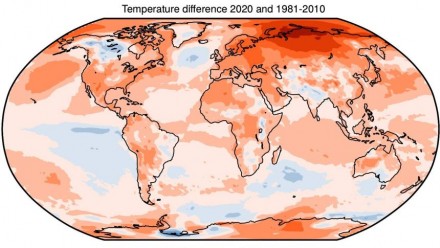2020 equals world's hottest year on record, as factors behind Black Summer become clearer
Thinning Arctic ice, more storms in the North Atlantic and record heat across Australia during La Niña during 2020 were some of the trademarks of the world's equal-hottest year on record, experts have warned.
Key points:
- 2020 and 2016 share the title of being the world's equal-hottest years on record
- Last year's record temperatures occurred despite La Nina
- Black Summer conditions were so extreme scientists have not been able to simulate them using computer models
The European Union's Copernicus Climate Change Service said the past six years have been the world's hottest years on record, and last year equalled 2016.
Copernicus Climate Change Service director Carlo Buontempo called for climate policy action while releasing the service's report last weekend.
"It is no surprise that the last decade was the warmest on record, and is yet another reminder of the urgency of ambitious emissions reductions to prevent adverse climate impacts in the future," he said.
Globally, 2020 was 0.6 degrees Celsius warmer than the standard 1981-2010 reference period and about 1.25C above the 1850-1900 pre-industrial period.
Read the full article on the ABC News website, featuring Prof Nerilie Abram











